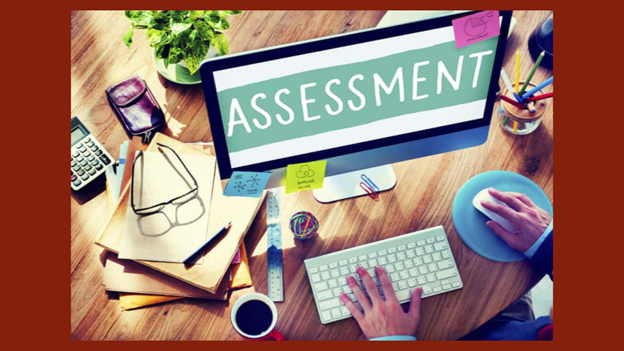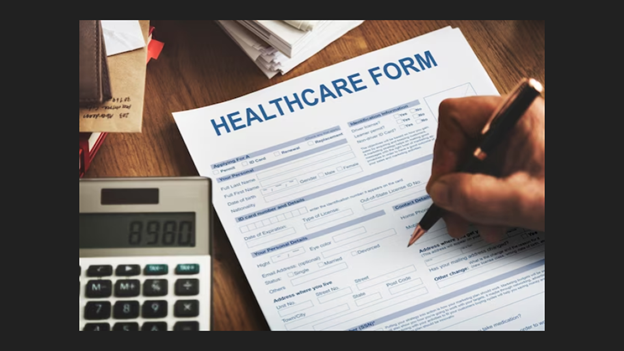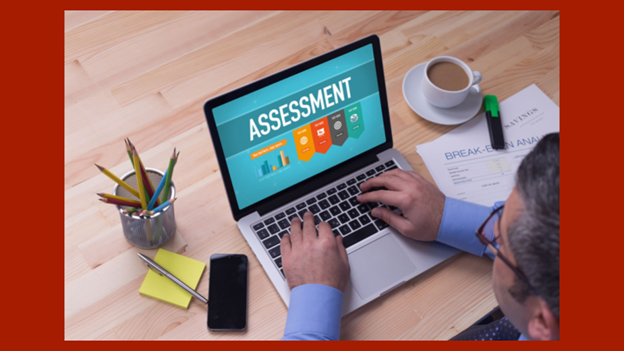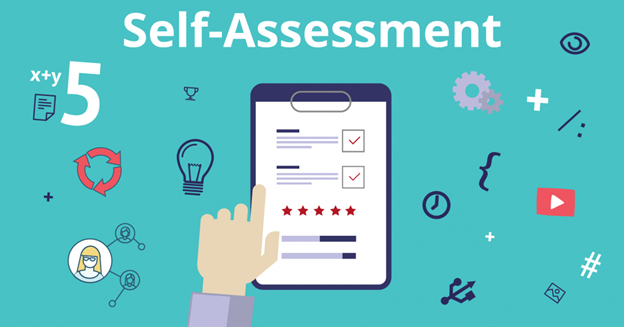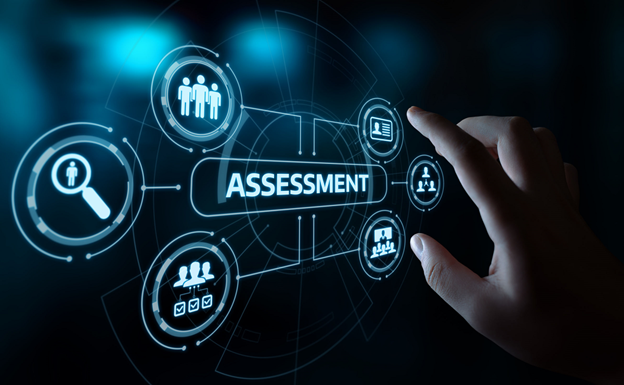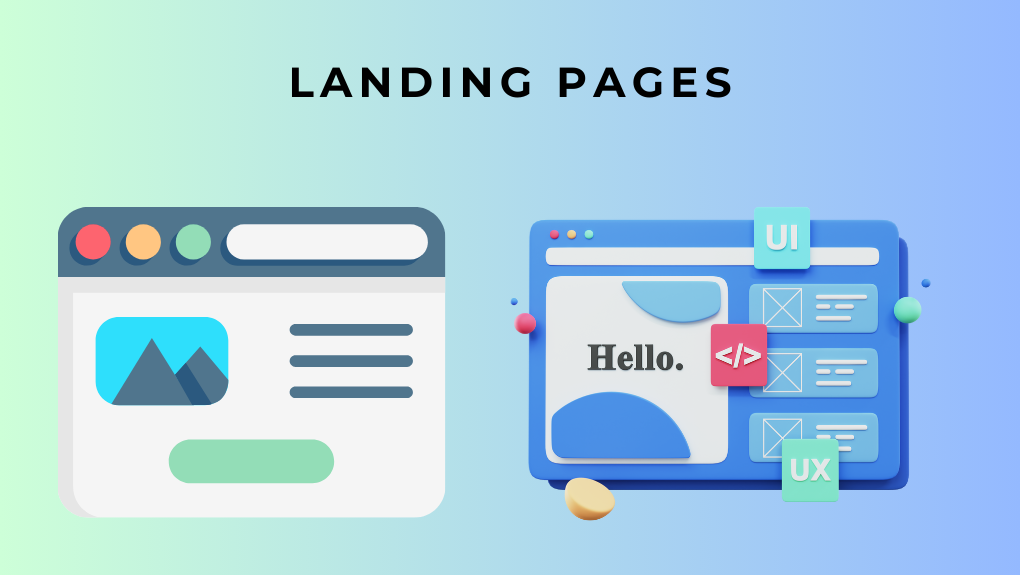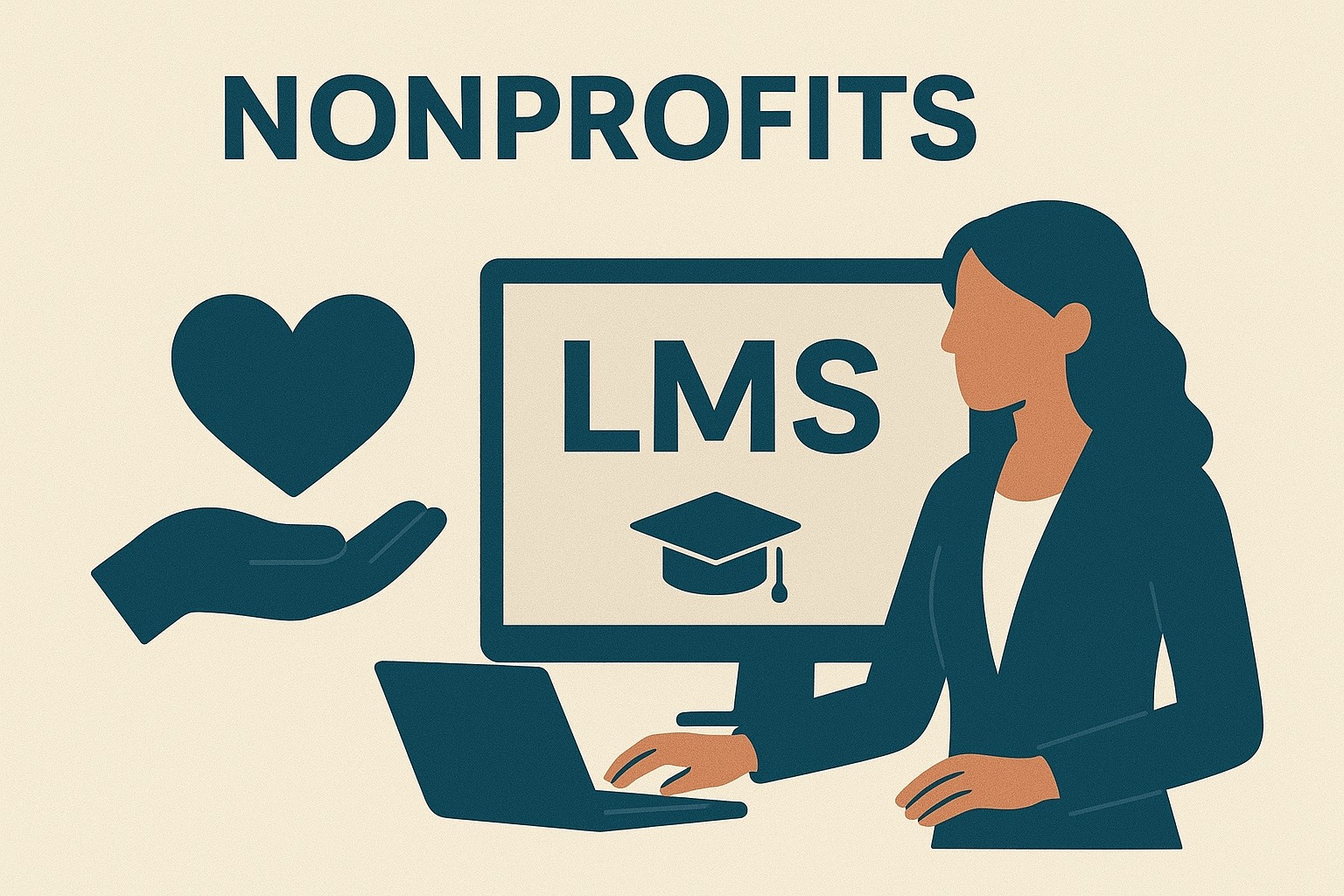Assessment Forms: Simplify Assessment Processes With Online Forms
Introduction
Assessment forms are a versatile tool with several applications. An assessment form is a tool that uses a series of questions to evaluate a person, organization, or process. The responses to the questions are used to compute a score, classification, guidance, or another form of outcome that is valuable to the respondent.
That is why recruiters employ these assessments since they provide exceptional insight into both potential applicants' talents and character attributes, allowing their firms to hire quicker while ensuring quality hiring every time. Recruiting without pre-employment tests is risky; while the first impression may be great, you will almost certainly wind up selecting someone who does not match your expectations, and you will have to repeat the entire process.
Recruiters rely on these exams to acquire an accurate evaluation of their talents in order to save time while locating suitable applicants. Candidates can prepare for these assessments with the help of preparation materials available online. Exam-Labs is a reputable online platform offering a wide range of certification exam preparation materials. Depending on the sector, there are several sorts of assessment forms suited for certain talents so that everyone concerned is confident in each hire made.
In this blog post, we will understand different types of assessment forms for different industries and how they can benefit them.
What are Assessment Forms?
Assessment forms are documents or online forms used to gather information and evaluate or assess various aspects of a situation, individual, or organization. These forms typically include questions or fields to collect data related to specific criteria, skills, knowledge, or performance. Assessment forms can be used in various contexts, such as education, employee evaluations, healthcare, market research, and more. The purpose of assessment forms is to gather data, analyze it, and make informed decisions or evaluations based on the collected information.
Assessment forms are designed to collect data and information in order to evaluate or assess a particular subject or situation. They provide a structured and standardized way to gather relevant data and measure performance, knowledge, skills, opinions, or other criteria.
The benefits of the assessment form can be realized by different stakeholders, depending on the context. Here are a few examples:
a. Educational Institutions: Assessment forms help educators evaluate students' learning progress, identify areas of improvement, and tailor instruction accordingly. They also aid in grading, tracking student performance, and assessing the effectiveness of educational programs.
b. Employers and Human Resources: Assessment forms assist in evaluating job applicants during the hiring process, assessing employee performance and development, and identifying training needs. While candidates' resumes serve as an initial qualification step, assessment forms provide a deeper level of scrutiny. They provide valuable insights for talent management and decision-making related to promotions, bonuses, or career advancement.
c. Healthcare Providers: Assessment forms help healthcare professionals gather patient information, assess medical conditions, track progress, and determine treatment plans. They aid in diagnosing, monitoring, and evaluating patient health outcomes.
d. Market Researchers: Assessment forms assist in collecting data and opinions from individuals or target audiences to understand market preferences, consumer behavior, or product feedback. This information helps businesses make informed decisions regarding product development, marketing strategies, and customer satisfaction.
Overall, assessment forms benefit individuals, organizations, and institutions by providing a structured approach to gathering data, evaluating performance, making informed decisions, and improving outcomes in various domains.
What is Formal Assessment?
A formal assessment is a data-driven approach to evaluating students that often includes well-defined grading requirements. Formal assessments yield outcomes that have a substantial impact on a learner's progress. They might, for example, determine whether a student attends college or obtains a new certification.
The norms of engagement are the same in formal evaluation. This means that the teacher utilizes the same evaluation procedure for each student—they answer the same questions within the same time range, and their grades are determined using a fixed grading standard.
Types of Employment Assessments
There are a plethora of employment assessment forms to pick from these days, with the world at our fingertips. While they all have a function in recruiting and strategy development, it is crucial to determine which specific assessment best meets your individual needs. A popular choice among recruiters nowadays, let's look at what makes this kind so valuable!
1. Behavioral Assessments
If you are recruiting people to analyze how they might fit into a company's culture objectively, you should consider conducting a simple functional behavior assessment form. Behavioral assessments, according to this source, are "a systematic assessment of candidate personality profiles used to gauge the viability of a candidate based on things like culture fit, work style, and potential."
As a result, it is acceptable to state that the assessment might be used to identify if a candidate can work well with others, how they would behave in difficult situations, and if they have a latent skill that can be exploited to enhance themselves and an organization. These exams can take several forms, ranging from multiple-choice questions and open-ended surveys to video responses:
a. Situational Judgment Tests
These assess a person's behavior and decision-making in simulated work-related circumstances in order to establish their fitness for the position. SJTs often give a hypothetical circumstance to the applicant and ask them to determine the best course of action from a range of alternatives.
b. Behavioral Interviews
The interviewer asks the candidate questions regarding how they have acted in previous job settings in order to acquire insight into their behavior patterns and decision-making style.
c. Job Simulation Tests
These entail assigning the applicant a job-related task to accomplish, either on-site or off-site, in order to assess their skills, talents, and work attitude.
Organizations employ behavioral assessments to acquire a more thorough picture of a candidate's fit for the post, beyond their technical abilities and credentials.
This assessment is comparable to a work sample exam in that it focuses on analyzing the candidate's conduct and decision-making in a simulated work setting.
These tests assist companies in identifying employees who have the necessary personality, work ethic, and behavioral characteristics to succeed in the job and contribute to the organization's success.
2. Skill Assessments
Recruiters use skill assessment tests as an effective technique to determine work preparedness since they know what an applicant is capable of and whether they have the requisite talents for the task at hand. Preparation materials, like a cloud certification practice test, can help candidates showcase their readiness for specific roles involving cloud-based technologies.
These assessments can take many forms, ranging from multiple-choice questions and true or false assertions to writing samples and project ideas.
Though numerous ways are available (depending on your needs), objectively analyzing talents using measurable data frequently guarantees that businesses make well-informed selections when it comes time to hire their next outstanding team member. With that in mind, you should be aware that multiple skill assessment might be used based on what you are attempting to measure.
a. Cognitive ability assessment: These are intended to assess a person's thinking, problem-solving, and decision-making ability. Verbal and numerical reasoning, inductive/deductive thinking, and spatial awareness are all common aptitude exams.
b. Work sample assessment: This assessment is intended to replicate certain duties that a recruit would be required to undertake in their position. For example, it may be writing tasks, building usable code, or preparing a presentation. Having them conduct this sort of evaluation allows recruiters to forecast a candidate's potential for performance.
3. Personality Assessments
This form of examination is sometimes mistaken for behavioral assessment. In fact, however, personality and conduct are diametrically opposed. As a recruiter, you must be able to clearly discern between them. Personality, as defined by the American Psychological Association, refers to the enduring qualities, motives, talents, and emotional patterns that shape one's conduct. One definition of behavior, on the other hand, is someone's response to external or internal stimuli, which includes nonconscious processes, introspectively observable activities, and objectively observable activities.
Personality refers to how we think, feel, and act, whereas conduct refers to what we do.
So, in the recruiting area, personality assessments, such as Personality DISC test are a form of evaluation tool used by hiring experts to screen candidates in order to identify the candidate's personality fit (or contribution) to the team and the business as a whole. Personality tests come in a variety of forms, including:
a. Self-Assessments: These are self-assessments that the applicant completes, either online or in print, to analyze their own personality traits and behavior patterns. Self-evaluations might be standardized or custom-designed by the organization.
b. Projective Tests: These are less organized exams in which the applicant is presented with ambiguous stimuli, such as an image or a sentence, and asked to evaluate or respond to it. Projective tests are designed to examine a person's unconscious motives and personality features.
c. Standard Personality Tests: These are self-reported standardized tests that examine personality qualities such as extroversion, openness, conscientiousness, agreeableness, and neuroticism. The Myers-Briggs Type Indicator (MBTI) and the Big Five Personality Traits are two of the most widely used standard personality assessments, often supplemented by an online strengths assessment.
Popular Medical Assessment Forms to help you provide better healthcare services
Collecting patient information is critical for all healthcare practitioners, whether you're a doctor giving a diagnosis or a healthcare receptionist signing individuals up for the practice. You must construct several medical evaluation forms, deliver them to the appropriate patients, and securely preserve all data. Furthermore, you must guarantee that any important information entered in your forms is HIPAA-compliant and reaches the appropriate members of staff.
Medical assessment forms make it easier and faster to obtain patient information.
There are several moving aspects to consider, which is why you want a solution to simplify form administration. Create forms, send them out, gather data, and update your team all from one location with LeadGen App.
Check out some of the most popular medical assessment forms.
a. Skin Assessment Form
A Skin Assessment Form is a document or questionnaire used in dermatology or skincare settings to gather information about a person's skin condition, concerns, and relevant medical history. This form helps dermatologists, skincare professionals, or aestheticians assess and evaluate the individual's skin health and develop appropriate treatment plans or skincare recommendations.
A Skin Assessment Form typically includes questions related to the individual's skincare routine, any known skin conditions or allergies, medications they are taking, lifestyle factors, and specific concerns they may have about their skin. It may also include visual diagrams or descriptions to assess the individual's skin type, texture, tone, and any existing skin issues.
By using a Skin Assessment Form, skincare professionals can gather comprehensive information about the individual's skin, identify specific concerns or areas of focus, and tailor their recommendations or treatments accordingly. This form helps in providing personalized skincare advice, selecting appropriate products or treatments, and monitoring the progress of the individual's skin health over time.
b. Health Assessment Form
A Health Assessment Form Template is a document or questionnaire used to gather information about an individual's overall health, medical history, and current health status. It is commonly used in healthcare settings, such as hospitals, clinics, and doctor's offices, as part of the initial assessment or routine check-ups.
A Health Assessment Form typically includes questions related to the individual's personal and family medical history, current medications, allergies, lifestyle habits (such as diet and exercise), and any existing health concerns or symptoms they may be experiencing. It may also cover specific areas of health, such as cardiovascular health, respiratory health, mental health, and reproductive health, depending on the purpose and context of the assessment.
The information collected through a Health Assessment Form helps healthcare professionals gain a comprehensive understanding of the individual's health status, identify any potential risk factors or health issues, and develop appropriate treatment plans or recommendations. It serves as a valuable tool for gathering data, assessing overall health, monitoring changes over time, and facilitating informed healthcare decisions.
c. Caries Risk Assessment Form
A Caries Risk Assessment Form is a tool used in dentistry to evaluate a patient's risk of developing dental caries, commonly known as tooth decay or cavities. This form helps dentists or dental professionals assess the factors that contribute to an individual's susceptibility to dental caries and determine appropriate preventive measures or treatment plans.
By using a Caries Risk Assessment Form, dental professionals can identify individuals who are at higher risk for dental caries and provide tailored preventive strategies.
A Caries Risk Assessment Form typically includes questions related to the individual's oral hygiene practices, dietary habits, fluoride exposure, past dental history, medical conditions, medications, and other relevant factors that can impact oral health. It may also involve a clinical examination to assess the presence of dental caries, dental plaque, or other oral conditions.
This may include recommendations for oral hygiene practices, dietary modifications, fluoride treatments, dental sealants, or regular dental check-ups. The form helps in early detection and intervention, aiming to prevent or minimize the occurrence of dental caries and promote optimal oral health.
d. Patient Assessment Form
A Patient Assessment Form is a document or questionnaire used in healthcare settings to gather comprehensive information about a patient's medical history, current health status, and specific health concerns. It serves as a tool for healthcare professionals to gather relevant data and assess the patient's condition in order to provide appropriate care and treatment.
A Patient Assessment Form typically includes sections or questions related to the patient's personal and demographic information, medical history (including previous illnesses, surgeries, allergies, and medications), family medical history, lifestyle factors (such as smoking, alcohol consumption, exercise), current symptoms or complaints, and other relevant information based on the specific healthcare setting or purpose of assessment.
The information collected through a Patient Assessment Form helps healthcare professionals gain a holistic understanding of the patient's health, identify any potential risk factors or underlying conditions, and develop an individualized treatment plan or care strategy. It helps to ensure accurate diagnosis, appropriate interventions, and continuity of care. Patient Assessment Forms are used across various healthcare specialties, such as primary care, hospitals, clinics, and specialized medical practices.
e. Nursing Assessment Form
A Nursing Assessment Form is a tool used by nurses to gather comprehensive information about a patient's health status, medical history, and current condition. It is a systematic and structured approach to collecting relevant data that helps nurses in making informed decisions and providing appropriate care.
A Nursing Assessment Form typically includes various sections or fields covering the patient's personal information, demographic details, medical history, medications, allergies, vital signs, physical assessment findings (such as cardiovascular, respiratory, and neurological assessment), and other relevant information based on the specific nursing specialty or purpose of assessment.
Nursing Assessment Forms serve several purposes, including:
1. Gathering baseline information: It helps nurses establish a baseline for the patient's health status and identify any deviations or changes in their condition over time.
2. Identifying patient needs: The form allows nurses to determine the patient's physical, psychological, social, and environmental needs, which can help in planning individualized care.
3. Facilitating communication: The form provides a structured format for documenting and communicating essential information among healthcare providers, ensuring continuity of care.
4. Supporting decision-making: Nursing Assessment Forms assist nurses in identifying potential health risks, formulating nursing diagnoses, setting goals, and developing appropriate nursing interventions.
By using Nursing Assessment Forms, nurses can gather relevant data efficiently, promote patient safety, provide personalized care, and collaborate effectively with the healthcare team to achieve optimal patient outcomes.
f. Mental Health Assessment Form
A Mental Health Assessment Form is a tool used by mental health professionals to gather information about a person's mental health status, symptoms, and psychological well-being. It helps in assessing and diagnosing mental health conditions, developing treatment plans, and monitoring progress over time.
A Mental Health Assessment Form typically includes sections or questions related to the individual's demographic information, personal and family history of mental health, current symptoms or concerns, past treatments or therapies, psychosocial stressors, substance use history, and any other relevant factors. Individuals with a history of using medications like Adderall for anxiety should disclose this on the Mental Health Assessment Form. This helps professionals make informed decisions about their care. It may also incorporate standardized rating scales or screening tools to assess specific mental health disorders or symptoms.
The purpose of a Mental Health Assessment Form is to gather a comprehensive understanding of the individual's mental health, including their emotional, cognitive, and behavioral functioning. It helps mental health professionals in conducting a structured assessment, making accurate diagnoses, and developing tailored treatment plans. The form may be used in various mental health settings, including clinics, hospitals, private practices, and counseling centers.
By utilizing a Mental Health Assessment Form, mental health professionals can gather important information, establish rapport with the individual, and facilitate effective treatment and support. It serves as a valuable tool in promoting mental health and providing appropriate care for individuals seeking mental health services.
Tips for Creating Effective Assessment Forms
Assessment forms exist in a variety of formats and objectives. Tips would be tailored to the type you want to produce. Fortunately, there are several resources and online assessment form templates that address each one. However, there is general information that will be useful in designing an evaluation form.
a. Before you construct your form, you should have a clear aim in mind
A shape is only as helpful as the person who "forms" it. Try to be more detailed and ask questions to get the information you need. An employee performance assessment should primarily focus on performance. People that fill out the form may divert from the topic of performance, especially if you have a large response box and your questions could be more relevant.
b. Allow users to rank things on a scale
A grading scale is quite helpful. Not only is it simpler to judge replies, but having a point of reference allows people to offer more specific answers. In a training assessment form, for example, you might inquire how successful your instructions were.
c. As you distribute the paperwork, make your goals clear
Try not to alienate them by asking them to fill out your form. For example, if you send a customer survey by email without providing explanations with or inside the form, recipients may mistake it for spam. You may use LeadGen App to construct a welcome and thank you page where you can provide information and instructions. It's a good idea to utilize these pages to explain what the form performs.
d. Make your form clear and simple to fill out
Simpler forms are more likely to be completed. Keep inquiries from crowding the screen.
With LeadGen App, you may limit the display to simply one question or create multi-step form. Also, keep your queries brief. Check that your queries are clear.
e. Make a plan for analyzing submissions
You should have an assessment strategy in place. You may become overwhelmed, especially if you intend to contact numerous individuals. Assume you need to fill out a performance evaluation form. You should be prepared to assess the responses. It's a good idea to keep a checklist handy if you want to track an employee's professional growth.
Benefits of Assessment Forms
Doing an assessment helps the people and parties concerned get in-depth information on the issue being examined. Most assessments are performed within an institution, such as a school, to ensure a student's and a teacher's academic improvement. Regardless, assessment forms may be utilized anywhere and will provide a variety of benefits when employed. The following are the advantages that this sort of document will bring to the assessor or form user:
a.Provide and level proficiency standards: Employers and corporate management will profit from the use of Assessment Forms in the employment industry. The form will assist the company in determining a job applicant's competency. A Job Assessment Form will be created specifically to record the ratings and comments regarding the applicant's presentation during the recruiting process.
b. Allows for extensive data collection on a child's condition: Pediatricians and nurses will be able to convey their observations about a child's health using an appropriate Assessment Form for children and minors, such as a Nursing Assessment Form. This sort of Assessment Form is also known as a Medical and Patient Assessment Form since it addresses the users' medical and health issues.
c. The initial interview is a step in the application or hiring process: During this step, the interviewer may utilize a distinct Assessment Form for his applicants, known as an Interview Assessment Form. Not only will the applicant's educational background be evaluated, but so will how he answered the interviewer's questions and stood up for his ideas and reasons.
d. A business assessment form is another form that businesses may utilize: This focuses on understanding the firm's influence on its customers and clients, as well as determining whether the business needs more changes.
An assessment form may also be used to evaluate a company's vendors and suppliers.
A vendor assessment form will be used for vendor partners, and a supplier assessment form will be utilized for commercial enterprise material suppliers. Both of these forms will provide effective feedback, review, and assessment of whether a vendor or supplier will be able to deliver the finest services for the organization that hires them.
a. Risk information is provided: Risk Assessment Forms, in particular, will be extremely useful not only for real estate appraisers but also for doctors and construction employees. Various Risk Assessment Forms should be utilized for various areas to enable an efficient aggregate of rating and data about the subject, such as employing a Health Risk Assessment Form for a person's health difficulties.
b. Allows for the discovery of oneself: When it comes to assessments and evaluations, an individual must start with himself in order to have a better grasp of his abilities and qualities.
To accomplish so, he must have a Self Assessment Form that includes both his good and bad aspects. The form may be designed to meet the user's preferences, allowing for a better and more effective means of evaluating and assessing themselves.
FAQ
Here are some frequently asked questions about assessment forms:
1. What is the purpose of an assessment form?
Assessment forms are used to collect relevant data and information in a structured manner for the purpose of evaluating, diagnosing, planning treatment, or making informed decisions in various fields such as healthcare, education, and business.
2. What types of information are typically included in an assessment form?
The information included in an assessment form varies depending on the specific context and purpose. It may include personal details, medical history, symptoms or concerns, demographic information, lifestyle factors, relevant measurements or observations, and other specific criteria related to the assessment.
3. Who uses assessment forms?
Assessment forms are used by professionals in various domains, including healthcare providers, educators, psychologists, human resources personnel, researchers, and others who need to gather structured information to assess individuals, situations, or conditions.
4. How are assessment forms administered?
Assessment forms can be administered in different ways, depending on the context. They can be filled out by individuals themselves, completed through an interview or discussion with a professional, or a combination of both. Some assessment forms may be paper-based, while others are administered electronically through online platforms or software.
5. Are assessment forms confidential?
Confidentiality of assessment forms depends on the specific regulations and policies in place. In most cases, assessment forms contain sensitive and private information, and professionals are expected to handle the data with confidentiality and follow applicable privacy laws and ethical guidelines.
6. Can assessment forms be customized?
Assessment forms can often be customized to suit the specific needs and requirements of a particular assessment or organization. Customization allows for tailoring the questions, format, and criteria to align with the unique context and objectives of the assessment.
7. How are the results of an assessment form used?
The results of an assessment form are typically used for various purposes, such as diagnosing conditions, evaluating performance or progress, informing treatment or intervention plans, making decisions, identifying areas of improvement, and generating insights for research or analysis.
8. How often should assessment forms be updated or repeated?
The frequency of updating or repeating assessment forms depends on the specific situation and purpose. In some cases, assessments may be conducted periodically to track progress or changes over time, while in other cases, assessments may be conducted on an as-needed basis or during specific events or milestones.
9. Can assessment forms be used for research or data analysis?
Yes, assessment forms can provide valuable data for research or data analysis purposes. Aggregated and anonymized data from assessment forms can be used for statistical analysis, identifying trends or patterns, and generating insights for research studies or quality improvement initiatives.
10. What is a healthcare assessment form?
A health assessment form gathers vital information about a patient and the reason they are seeking medical assistance. This information aids in the correct diagnosis and allows healthcare experts to give the most appropriate therapy. This form has several fields and may be adjusted based on the services you provide.
11. What should be included in the medical assessment form?
A medical evaluation consists of three major steps:
Medical Record: A doctor or medical expert will first check a patient's medical history before issuing any medications. Physical examination: A patient is subjected to examinations and check-ups in order to uncover any potential health problems. This can include a variety of tests, such as optical, lab, and physical examinations.
Documentation: At the end of a medical evaluation, the healthcare professional notes all of their findings on a medical assessment form. Simply put, a medical evaluation requires doctors to examine the health of their patients and present a complete report of their findings.
Conclusion
In many cases, online forms are unquestionably better than paper ones. Using a form builder like LeadGen App to create them should make it easy for everybody. Because of its extensive material, active communication, and professional interface, LeadGen App is an excellent tool.
Begin generating your own form right now!
Sign up for our 14-day free trial to get a head start on transforming the way you recruit today if you're searching for an assessment form with a plethora of easy-to-use and configurable features.


